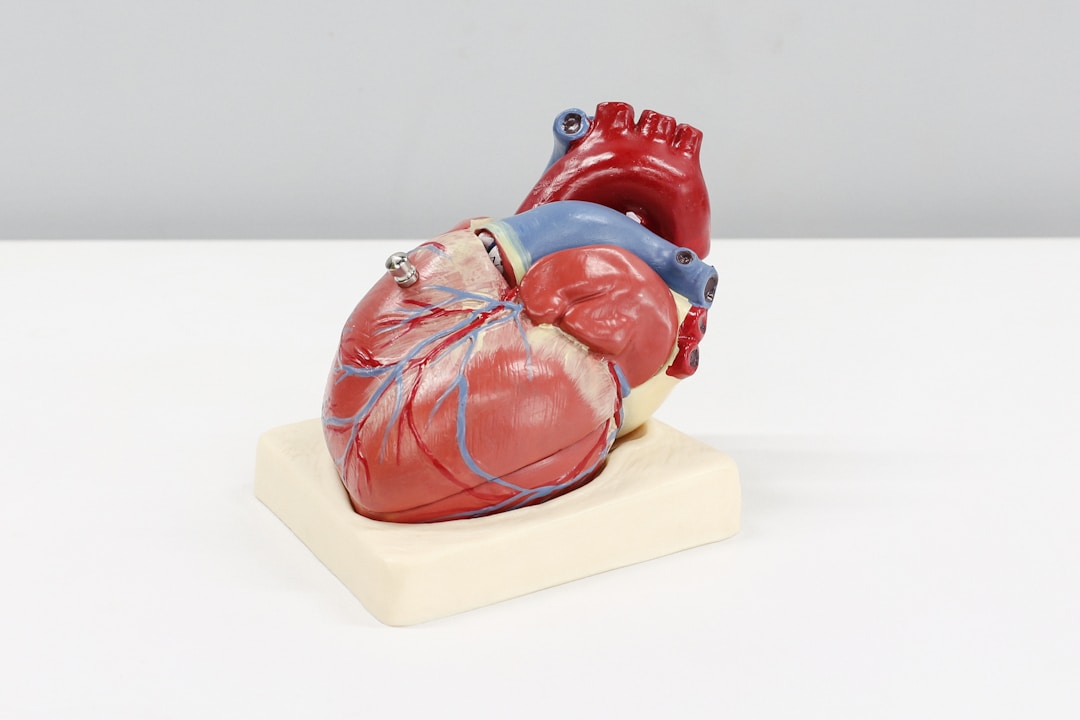We all need to prioritize good heart health for several reasons. By maintaining a healthy heart, individuals can reduce their risk of developing cardiovascular diseases, enjoy improved physical fitness, and experience better mental well-being. Taking proactive steps towards heart health, such as exercising regularly, eating a balanced diet, managing stress, and getting regular check-ups, can go a long way in ensuring a healthy heart and a healthier life. In this article, we delve deep into various aspects surrounding heart health, shedding light on various common heart ailments, prevention, and treatment. If you’re in need of some advice, keep reading!
The Importance of Regular Check-Ups

If you want to protect your heart health, one priority is to schedule regular check-ups with a cardiologist. While it may be tempting to only seek medical attention when we experience symptoms or have concerns, preventive care plays a major role in maintaining optimal heart health. Regular visits to a cardiologist allow for the early detection and diagnosis of potential heart conditions or risk factors, leading to timely intervention and effective management.
Cardiologists, like this cardiologist in Los Angeles, are specialized doctors who are experts in understanding and treating heart-related illnesses and conditions. They possess the knowledge and expertise to evaluate your heart health comprehensively, considering factors such as family history, lifestyle choices, and existing medical conditions. Through a series of tests and examinations, they can assess your cardiovascular health, including blood pressure, cholesterol levels, heart function, and signs of any abnormalities or potential risks.
Visiting a trusted cardiologist regularly is particularly valuable if you have a family history of heart disease or if you are at a higher risk due to age, obesity, smoking, or a sedentary lifestyle. By monitoring your heart health proactively, a cardiologist can provide personalized advice on lifestyle modifications and recommend appropriate treatments to reduce the risk of heart complications. They may also prescribe medications or refer you to other specialists, ensuring that you receive the most comprehensive and individualized care for your heart.
Understanding the Heart and Its Function
The heart, in its most fundamental role, acts as a pump supplying blood to the entire body. Made up of four chambers, it contrives a complex network facilitating the transport of oxygen and nutrients to various body tissues. Any impairment in the heart can lead to severe health disorders affecting the overall functioning of the body. Therefore, understanding its biomechanics can assist in preempting potential complications.
Being an integral organ, the heart requires care through a healthy lifestyle and regular check-ups, which provide early detection of any possible health risks. Here, expert consultation plays a vital role as they offer useful advice and resources in maintaining heart health. This advice can range from diet recommendations to exercise regimes designed for your specific needs. However, there are numerous conditions that people aren’t aware of. They often overlook symptoms, attributing them to minor issues or everyday inconveniences. This overlook can sometimes lead them to miss out on an early diagnosis, making treatment difficult later.
Common Heart Conditions and Their Causes

Heart conditions are a broad term that encompasses a variety of health issues related to the heart. These conditions can range from mild to severe, and they can affect people of all ages. Understanding some of the most common heart conditions and their causes is necessary for maintaining heart health. One of the most prevalent heart conditions is coronary artery disease (CAD), which occurs when the arteries that supply blood to the heart become narrow or blocked. Factors such as high cholesterol levels, high blood pressure, smoking, obesity, and a sedentary lifestyle can increase the risk of developing CAD.
Another common heart condition is arrhythmia, which refers to irregular heart rhythms. This can occur when the electrical signals that control the heart’s pumping action are disrupted. There are several types of arrhythmias, including atrial fibrillation and ventricular tachycardia. Various factors can contribute to arrhythmias, such as heart damage from a heart attack, high blood pressure, diabetes, and an imbalance in electrolytes. Symptoms of arrhythmia can range from palpitations and lightheadedness to more severe complications like fainting and cardiac arrest.
Heart failure is another prevalent condition that can impact a person’s health. It occurs when the heart’s ability to pump blood efficiently is compromised. This can be caused by conditions such as CAD, high blood pressure, diabetes, and heart valve problems. Heart failure can lead to symptoms such as fatigue, shortness of breath, swelling in the legs and abdomen, and reduced exercise tolerance.
Preventing Heart Diseases: A Lifestyle-Based Approach
A healthy lifestyle is a part of preventing heart disease and maintaining well-being. That starts with a balanced diet. Following a diet rich in fruits, vegetables, whole grains, lean proteins, and low-fat dairy products can control blood pressure and cholesterol levels, which are key risk factors for heart disease. It is also essential to limit the intake of saturated and trans fats, sodium, and added sugars as they contribute to weight gain and unhealthy cholesterol levels.
Regular exercise is required for a healthy lifestyle that prevents heart disease too. Engaging in physical activities such as walking, jogging, swimming, or cycling for at least 30 minutes a day strengthens the heart and improves cardiovascular health. Exercise also promotes weight management, reduces stress, lowers blood pressure, and improves circulation, all of which contribute to a healthier heart.
Managing stress and getting enough sleep are also factors in maintaining a healthy lifestyle. Chronic stress can raise blood pressure and contribute to unhealthy lifestyle habits such as overeating, smoking, or excessive alcohol consumption, all of which can negatively impact heart health. Adequate sleep, on the other hand, is needed for repairing and rejuvenating the body, regulating blood pressure, and reducing stress levels.
The Future of Heart Health: Advancements and Innovations

Medical advancements promise an optimistic future for heart health. Innovative technologies such as heart mapping and advanced imaging have revolutionized the diagnosis and treatment of heart diseases. They provide a precise and comprehensive view of the heart, aiding in accurate disease identification. Moreover, the emergence of minimally invasive surgeries has transformed the landscape of cardiac treatments.
Minimally invasive surgeries offer quicker recoveries with less pain and shorter hospital stays, making cardiac care more efficient and patient-friendly. Also, with the incorporation of AI and machine learning, predictive analytics is set to revolutionize cardiac care. It can help in identifying potential risks, thereby enabling preventive measures even before the diseases develop. This approach is transforming the face of cardiac care and brings hope for a healthier future.
Good heart health is imperative for a fit and active life. By being proactive about our heart’s health and making wise choices, we can certainly have a healthy, well-rounded life. Remember, the first step to taking care of our heart is to understand it, and with this understanding comes the chance to live life to the fullest. As with all information pertaining to health and well-being, it is important to talk to a professional. They can provide you with accurate and relevant advice pertaining to your personal situation. Our health is in our hands, and taking care of it should always be a priority. Maintaining a healthy heart requires consistent effort and dedication, but when achieved, can lead to an improvement in the quality and duration of life.













